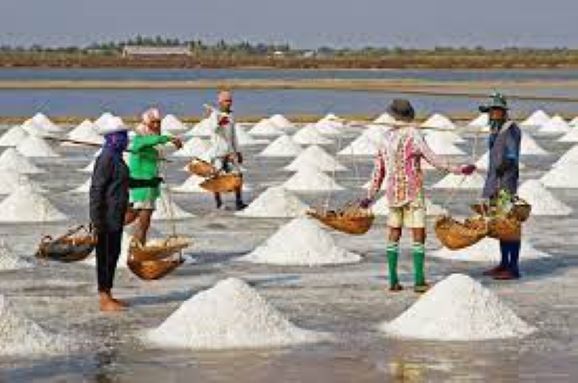By Hassan Zaggi
A coalition of Civil Society Organisations (CSOs)- Network for Health Equity and Development (NHED), have called on the members of the National Assembly to revive the salt intake reduction draft Bill that was stepped down by the previous Assembly.
The Spokesman for NHED, Dr Jerome Mafeni, made the call at the formal launch of the coalition for campaign against high salt (sodium) intake, in Abuja, yesterday.
Dr. Mafeni who is also the Director and Project Adviser, Campaign for Reduction of Salt in Commercially Produced Food, said that the call was necessary considering that the draft bill for reduction of (sodium) salt intake has been in the National Assembly for a long time.
According to him, “Like you know, our politicians, lawmakers respond to demand. The draft bill of the reduction of salt intake which has been in the National Assembly need to be revive and worked on.
“Once our coalition has become visible, we will echo our voice to increase the demand that the draft bill be made a legislation.
“We will follow up with the demand for a legislation from authority responsible in order to reduce salt intake in the country. We will make sure all relevant government agencies wake up to follow the bill up from where it was stalled and bring it to life.”
He, however, warned that consumption of excess salt can lead to chronic illnesses which can further lead to premature death.
“If you take too much salt, you will get heart disease and if you get heart disease, whether it is hypertension, heart failure or stroke, it will lead to premature death,” Dr. Mafeni warned.
While advocating for drastic reduction in the amount of salt intake by Nigerians, he said: “So, if you begin to reduce the amount of salt you consume from food that you eat, then there is a very good chance that you will not get those heart diseases, and you will live long, live healthy, and not going to the hospital or take drugs everyday for the rest of your life.”
He warned on the dangers of the excessive intake of the noodles, as according to him, noodles contain high amount of salt.
“Those that consumed excessive noodles should also reduce it. Anything you consume that has too much salt should be cut down, cut it out or shake it out,” he stressed.
He disclosed that Civil Society Organisations (CSOs) working to ensure reduction of salt intake have collaborated with agencies of government including the National Agency for Food and Drugs Administration and Control (NAFDAC) to ensure processed foods in the country do not contain too much salt.
“We have been collaborating with NAFDAC for several years on various issues, at the start of this campaign, we definitely have been in-touch with both the Federal Ministry of Health Department of Food and Drug Services as well as well with NAFDAC, the agency mandated to regulate all the foods that we consumed.
“NAFDAC is fully onboard and is very appreciative of this initiative and is willing to corporate with us.”
On her part, while responding to questions from journalists, the In-Country Coordinator of Global Health Advocacy Incubator (GHAI), Joy Amafah, revealed that they have, over the years, engaged in high level advocacy for public health policies in an effort to reduce cardiovascular diseases.
“Our advocacy strategies are really wide and broad, we do high level engagement, engaging with decision makers, bringing issues of the subject matter to the national agenda, engaging with civil coalition, individuals, groups and organisations with similar interest with the aim of pushing agenda forward.”
Speaking with journalists, the NHED Communication Specialist, Mrs Tessy Maina, appealed to journalists in the country to put the issue of reduction of salt intake at the front burner in the interest of Nigerians.
According to her, excessive salt intake has many negative consequences, hence, the need for the media to pass the message to Nigerians.
She vowed that NHED will continue to collaborate and partner with the media to ensure all Nigerians are aware of the dangers of excessive salt intake and therefore, the need for behavioural change.



